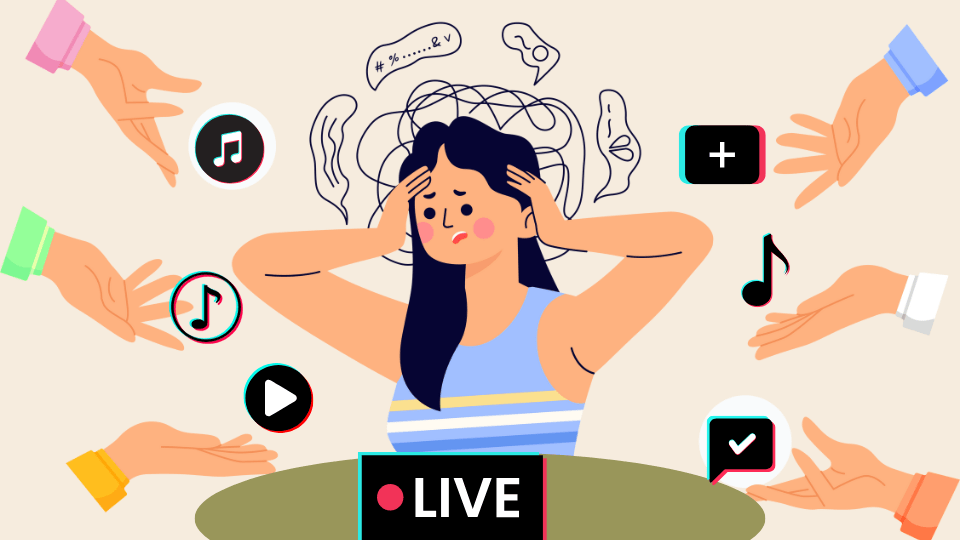French Families Hold TikTok Accountable for Teen Suicides: A Growing Call for Social Media Responsibility
Recently, seven families in France initiated a lawsuit, seeking to hold TikTok accountable for the tragic suicides of their teenage daughters. The families claim that TikTok’s recommendation algorithms played a role in exposing teens to harmful content that contributed to their declining mental health. This case, in which French families hold TikTok accountable for teen suicides, has sparked serious discussions around social media safety, mental health, and the responsibility of digital platforms in protecting young users.

The Basis of the Lawsuit
In this landmark case, the families argue that TikTok’s content algorithms are specifically designed to keep users engaged by recommending videos that may capture their attention, regardless of the potential risks. The parents claim that the app’s algorithms consistently recommended distressing content, including videos promoting self-harm and suicidal ideation, which French families hold TikTok accountable for. The lawsuit suggests that the platform’s algorithms might have worsened the mental state of these vulnerable teens.
In filing this lawsuit, the French families hope to highlight how TikTok’s design could endanger young users by exposing them to potentially damaging material. They argue that TikTok did not provide sufficient protections or controls to prevent teens from being exposed to such harmful content. By bringing this case forward, the French families hold TikTok accountable for teen suicides, aiming to prompt the platform to strengthen its safety measures.
The Influence of Social Media on Teen Mental Health
The role of social media platforms like TikTok in affecting teen mental health has been widely debated. Studies have shown that prolonged exposure to content that promotes harmful behaviors or unrealistic ideals can negatively impact young users, often heightening feelings of anxiety, depression, and inadequacy. When French families hold TikTok accountable for teen suicides, they are highlighting a broader concern: social media platforms can influence users’ mental health, particularly young people who may be more impressionable.
Social media algorithms are designed to enhance user engagement by suggesting content based on past viewing behaviors. However, when users are directed toward content that reinforces negative mental health themes, it can have devastating consequences. For parents and mental health advocates, this case represents a growing demand for social media companies to implement better protections.
TikTok’s Safety Measures and Response
In response to ongoing criticism, TikTok has implemented several safety measures aimed at protecting younger users. These include parental controls, screen time limits, and mental health resources to guide and support users. Despite these efforts, critics argue that the platform’s algorithms remain problematic, as they can still expose users to potentially harmful material. This case, in which French families hold TikTok accountable for teen suicides, has brought to light concerns that TikTok’s safety measures may not go far enough to shield vulnerable users.
Although TikTok has tried to address content safety by removing videos that promote self-harm or suicide, the lawsuit argues that the platform’s algorithms continue to recommend disturbing content to young users. For the families involved in this case, these measures fall short of what is needed, as the lawsuit seeks to hold TikTok accountable for teen suicides by pushing for greater responsibility and transparency.
The Push for Greater Accountability and Regulation
This lawsuit is part of a larger call for increased regulation and oversight of social media companies worldwide. In countries like France, there is already significant momentum toward protecting minors from exposure to online harms. If the lawsuit in which French families hold TikTok accountable for teen suicides is successful, it could set a strong precedent, potentially influencing similar cases and regulatory changes in other countries.
The case may serve as a critical turning point for holding social media companies responsible for the content their algorithms promote. As governments, advocates, and parents demand greater transparency from platforms like TikTok, new regulations could emerge that require stricter content moderation, algorithm adjustments, and safety measures specifically aimed at protecting young users.
Advocating for Awareness and Parental Guidance
This tragic situation also highlights the role of parents and educators in fostering safe digital practices among teenagers. While social media companies must play their part, parental involvement and open conversations about social media risks are equally important. When French families hold TikTok accountable for teen suicides, they are also sparking a conversation about the importance of digital literacy and resilience for young people navigating online spaces.
By advocating for change and raising awareness, families and communities can work together to educate teens about safe social media use. This may include teaching teens about responsible engagement, encouraging them to seek help when exposed to troubling content, and guiding them in recognizing the potential dangers of social media algorithms.
Conclusion
The lawsuit in which French families hold TikTok accountable for teen suicides underscores the urgent need for stronger safeguards, more responsible algorithm design, and heightened accountability from social media platforms. As digital platforms continue to shape the experiences of young users, it is crucial to establish standards that prioritize mental health and safety.
As this case unfolds, it has the potential to redefine social media’s role and responsibility in ensuring the safety and well-being of young people. For now, this tragic case stands as a reminder of the ongoing challenges faced by teens, parents, and regulators in navigating the complex world of social media.
If you are struggling with emotional distress or thoughts of suicide, it’s important to seek help from a professional. You can find resources for support, regardless of your location, on this website. Click Here.




